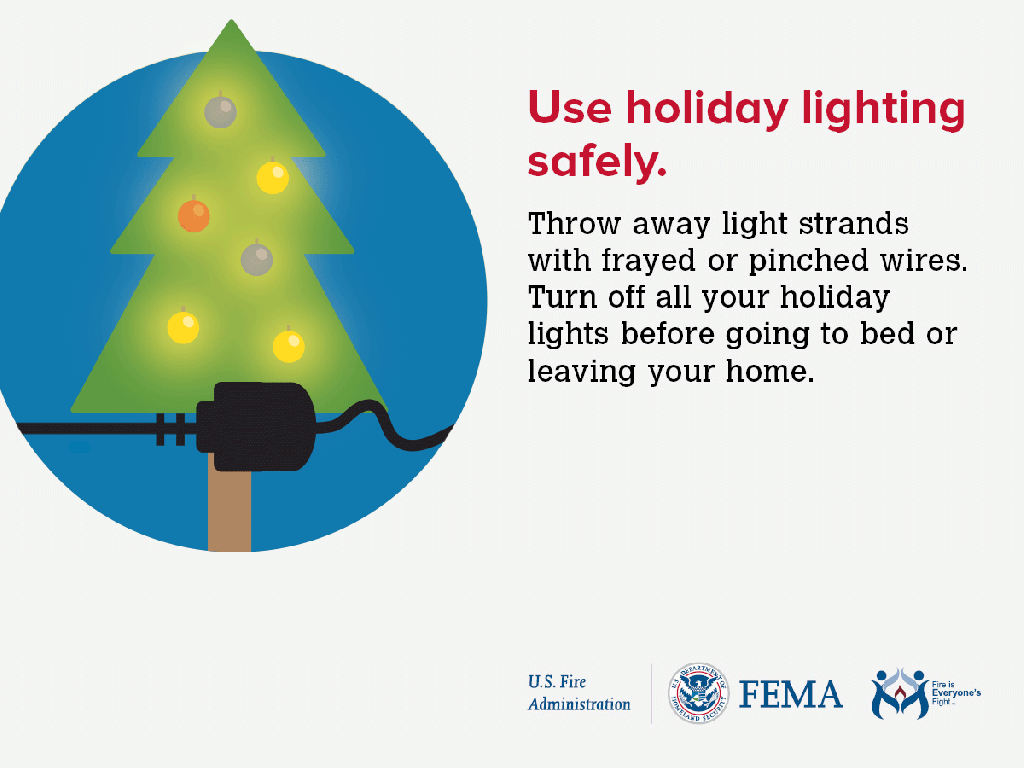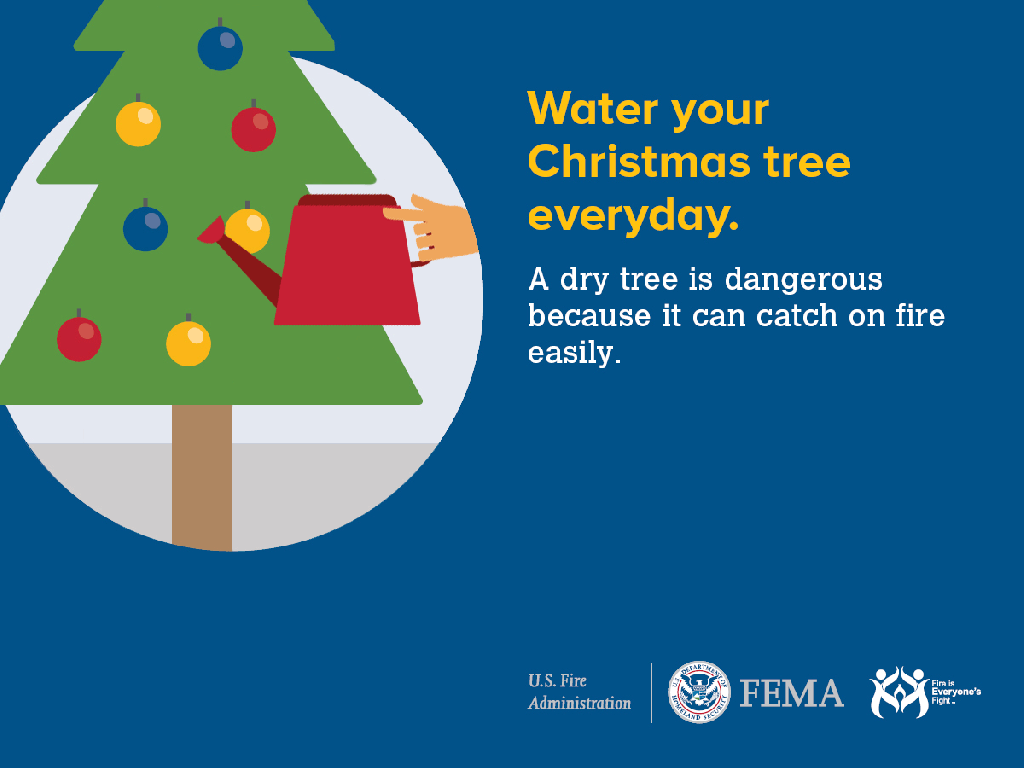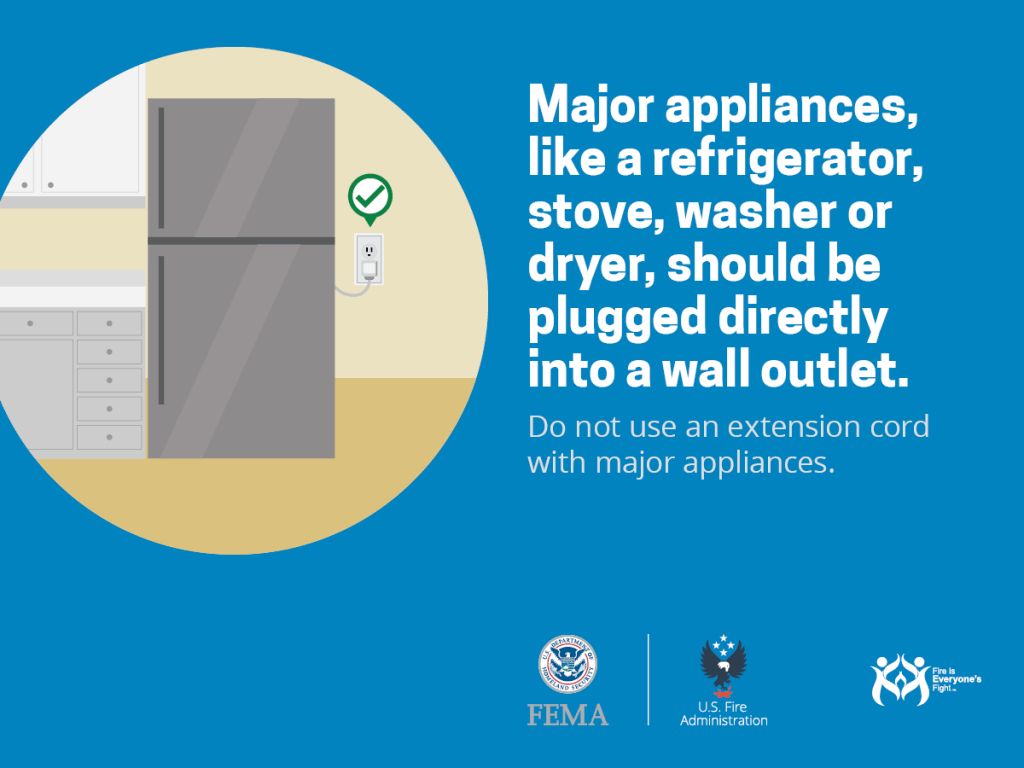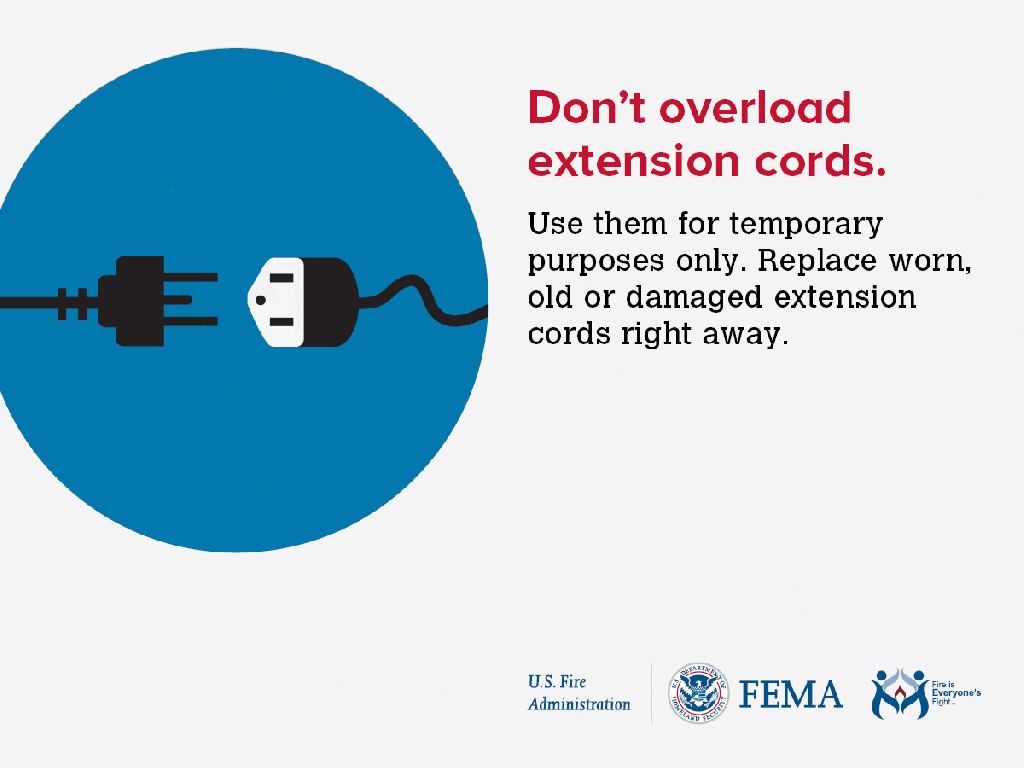Christmas trees account for hundreds of fires each year. Typically, shorts in electrical lights or open flames from candles, lighters or matches start tree fires. Well-watered trees are not a problem. A dry and neglected tree can be. Here is everything you need to know about keeping your home and family safe from fires during the holiday season!
Facts About Holiday Home Fire Safety
- One of every three home Christmas tree fires is caused by electrical problems.
- A heat source too close to the tree causes one in every four of Christmas tree fires.
- December is the peak time of year for home candle fires.
- One-third of all candle fires start in the bedroom.

Safety and Your Tree— Quick Tips
- Natural trees should be cut at a 45 degree angle
- Place tree away from sources of heat
- Use only non-flammable decorations
- Inspect lights for frayed wire or other defects before use
- Do not leave lights on unattended
- Keep the tree stand full of water at all times
- When the tree becomes dry, discard it immediately
Source for Content: National Fire Protection Association and U.S. Fire Administration.
Electricity helps make our lives easier but there are times when we can take its power and its potential for fire-related hazards for granted.
Electrical malfunction is the leading cause of home fires year after year. Here is everything you need to know about protecting your home and your family!
Home Electrical Fires - Did You Know?
- There are more than 45,000 home electrical fires every year
- About half of these involve lighting equipment and home electrical wiring
- Home electrical fire deaths peak between midnight and 6 a.m.
- Peak months for electrical fire deaths are December through March
What to Know About Electrical Fire Prevention
- Electrical work should only be done by a qualified electrician.
- Check your electrical cords. If they are cracked or damaged, replace them. Don’t try to repair them.
- Don’t overload extension cords or wall outlets.
- Never use extension cords with appliances. Plug them directly into wall outlets.







